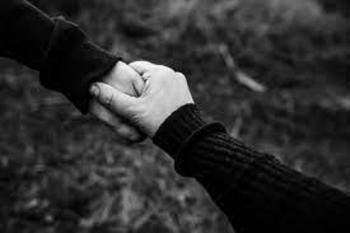 A toxic relationship is an unhealthy relationship. These relationships typically include feelings of being unloved, unwanted, misunderstood, unsupported, belittled, or even attacked. While most people consider a toxic relationship emotional and psychological abuse, there can also be issues with physical abuse and domestic violence.
A toxic relationship is an unhealthy relationship. These relationships typically include feelings of being unloved, unwanted, misunderstood, unsupported, belittled, or even attacked. While most people consider a toxic relationship emotional and psychological abuse, there can also be issues with physical abuse and domestic violence.
It is possible to find yourself in a toxic relationship and not really understanding how things got to that point. Often the toxic person is very good at hiding their abusive behavior at the beginning of the relationship. If the person is a narcissist, it can be difficult to understand the constant swings from overwhelming and grandiose acts of passion and love to absolute disdain and anger. The result is that you are constantly kept guessing what will happen next and doing everything you can to avoid the hostility and toxicity.
Signs of a Toxic Relationship
A few of the signs you are in a toxic relationship include:
Getting out of a toxic relationship is difficult, as your self-esteem and sense of self-worth areeroded. The longer you have been in this harmful relationship, the harder it will be to get away and start over.
Starting over may seem like a positive step, and many people look forward to getting into a new, healthy relationship. However, the impact of a toxic relationship has longer-lasting effects, including a loss of trust in new relationships.
Moving Forward
The good news is that you can learn to be comfortable in trusting yourself and in trusting others. It is not going to be a quick fix, and it may take months or years to work through the issues and to feel confident in your assessment of others.
There are some important steps to take in this work. Talking with a therapist can be extremely helpful in changing the way you think about relationships and in building your self-esteem. Also joining a support group with like minded individuals can be extremely supportive. The biggest issue is learning to trust your own intuition when it comes to meeting potential new partners.
While you are working on learning to love and trust yourself, there are some steps you can take to assess and evaluate any new partners. Making this more of an objective and less subjective “read” of the other person allows you to verify they are a trustworthy and safe person to spent time with in a relationship.
Tips For Building Trust
These tips and strategies can help to assess the trustworthiness of a new partner. A pattern or multiple issues of failing to meet these objectives or benchmarks in a relationship are red flags thatthey may be a toxic person.
• Freedom – do you have freedom in the relationsship or is he in control?
Learning from a toxic relationship is hard work. You can use the experience to develop an understanding of how to spot a toxic partner and how to avoid these destructive relationships in the future.
And Wake Up Recovery for Toxic Relationships, Codependency and Love Addiction and get my free ebook Narcissistic Partners and Love Addiction https://


